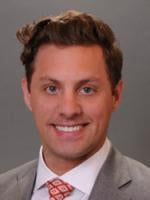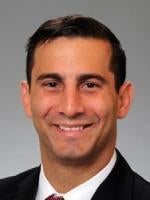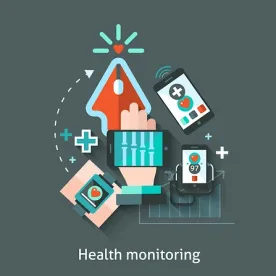It seems the efforts of telemedicine advocates to change federal law and allow greater prescribing of controlled substances are no longer falling on deaf ears. Congress just released a pair of draft discussion bills to amend the federal Ryan Haight Act.
The “Improving Access to Remote Behavioral Health Treatment Act” would allow certain community mental health centers and addiction treatment centers to obtain DEA registration as a clinic, thereby allowing telemedicine providers to prescribe controlled substances to patients present at those sites without the need for an in-person examination. Currently, treatment sites are restricted to DEA-registered hospitals and some very limited other non-hospital clinics. POLITICO Pro Morning eHealth reporter, Mohana Ravindranath, was among the first to report on the new legislation.
Congress simultaneously released a companion discussion bill titled the “Special Registration for Telemedicine Clarification Act” directing the Attorney General, with the Secretary of Health and Human Services, to, within 30 days of passage of the Act, promulgate interim final regulations governing the issuance to practitioners of a special registration relating to the practice of telemedicine. This special registration would allow practitioners to use telemedicine to prescribe controlled substances without the per se in-person exam.
The Original Intent of the Ryan Haight Act
The Ryan Haight Online Pharmacy Consumer Protection Act was designed to combat the rogue internet pharmacies that proliferated in the late 1990s, selling controlled substances online. The Act took effect April 13, 2009 and the Drug Enforcement Agency (DEA) issued regulations effective that same date. The Act essentially imposed a federal prohibition on form-only online prescribing for controlled substances. Although the Act was intended to target “rogue” internet pharmacies, legitimate healthcare providers who prescribe controlled substances via telemedicine must carefully review the regulations to ensure compliance.
The Ryan Haight Act does not per se prohibit the use of telemedicine to prescribe controlled substances, and a provider may do so if he or she has conducted at least one in-person exam of the patient or meets a “practice of telemedicine” exception to the Act’s in-person exam requirement. The problem is the “practice of telemedicine” exceptions are very narrow, highly technical, and simply outdated. For example, the Ryan Haight Act does not have a “practice of telemedicine” exception if the patient is at home, school, or work. The practice of telemedicine has evolved exponentially in the decade since the Ryan Haight Act was passed, and the regulations fail to account for how legitimate telemedicine services are delivered today. For that reason, the exceptions do not easily align with direct-to-patient service models frequently sought by patients in areas such as telepsychiatry or substance use disorder treatment. In addition, there is a nationwide shortage of psychiatrists and board certified substance abuse addiction specialists, coupled with the nation’s tragic opioid crisis, making telemedicine services an attractive resource.
How the Proposed Bills Will Benefit Telemedicine Providers
If adopted, the Improving Access to Remote Behavioral Health Treatment Act would expand the eligible “clinic” exception under the Ryan Haight Act, which currently states as follows:
“Treatment in a hospital or clinic. The practice of telemedicine is being conducted while the patient is being treated by, and physically located in, a hospital or clinic registered under section 303(f) of the Act (21 U.S.C. 823(f)) by a practitioner acting in the usual course of professional practice, who is acting in accordance with applicable State law, and who is registered under section 303(f) of the Act (21 U.S.C. 823(f)) in the State in which the patient is located […]”
The newly-eligible clinics under the draft bill would include community mental health centers and addiction treatment centers. This is an important step forward for patients and providers associated with those centers. However, many practitioners would contend the bill still fails to recognize contemporary telemedicine practice because it still requires patients to be physically present at one of those centers. One of the most powerful aspects of telemedicine technology is that it can bring the doctor to the patient, reaching people in need of legitimate medical services even when they are at home, school, or in rural areas without a nearby community mental health center and addiction treatment center. Direct to patient telemental health services can be an excellent way for patients to find a qualified therapist and receive meaningful treatment in the privacy of their home.
There is, however, one current exception under the Ryan Haight Act designed to accommodate this type of telemedicine practice. It is called the special registration and the law reads as follows:
“Special registration. The practice of telemedicine is being conducted by a practitioner who has obtained from the Administrator a special registration under section 311(h) of the Act (21 U.S.C. 831(h)).”
Unfortunately, despite the Ryan Haight Act being passed nearly ten years ago, the DEA has never activated or made available this special registration to allow providers to prescribe controlled substances via telemedicine without the need for an in-person examination and without the need for the patient to be present in a hospital or other brick-and-mortar facility.
In 2015, the American Telemedicine Association sent a letter to the DEA, advocating for provider-friendly changes to federal controlled substance prescribing rules. (Attorneys in Foley’s telemedicine practice were contributing authors to the letter.) The letter urged DEA to open a special registration process allowing psychiatrists and physicians to prescribe controlled substances via telemedicine without the need for an in-person exam. The ATA letter noted that “the interpretation of the [Ryan Haight] Act’s general prohibition of prescribing controlled substances by means of the internet has become overly restrictive.” DEA subsequently announced plans to issue a new rule to activate the special registration process allowing physicians to use telemedicine to prescribe controlled substances without an in-person exam. It has been two years since that announcement and DEA still has not published or publicly released any details about the proposed rule.
Recognizing the DEA’s failure to implement the special registration, members of Congress are now considering legislation to jumpstart action by the agency. The Special Registration for Telemedicine Clarification Act, if passed, would legislatively mandate that the DEA promulgate interim final regulations for the special registration within 30 days of passage of the Act. Activation of the special registration has the potential to dramatically expand the ability to prescribe controlled substances via telemedicine / telehealth, opening opportunities for direct-to-consumer models that many of today’s virtual care companies are utilizing.
After extensive delays, it appears the pressure is on for the DEA to take immediate action to recognize legitimate telemedicine prescribing of controlled substances and help benefit both providers and patients across the country.
We will continue to monitor progress of both bills and other developments on the Ryan Haight Act, so please check back for updates.





 />i
/>i

